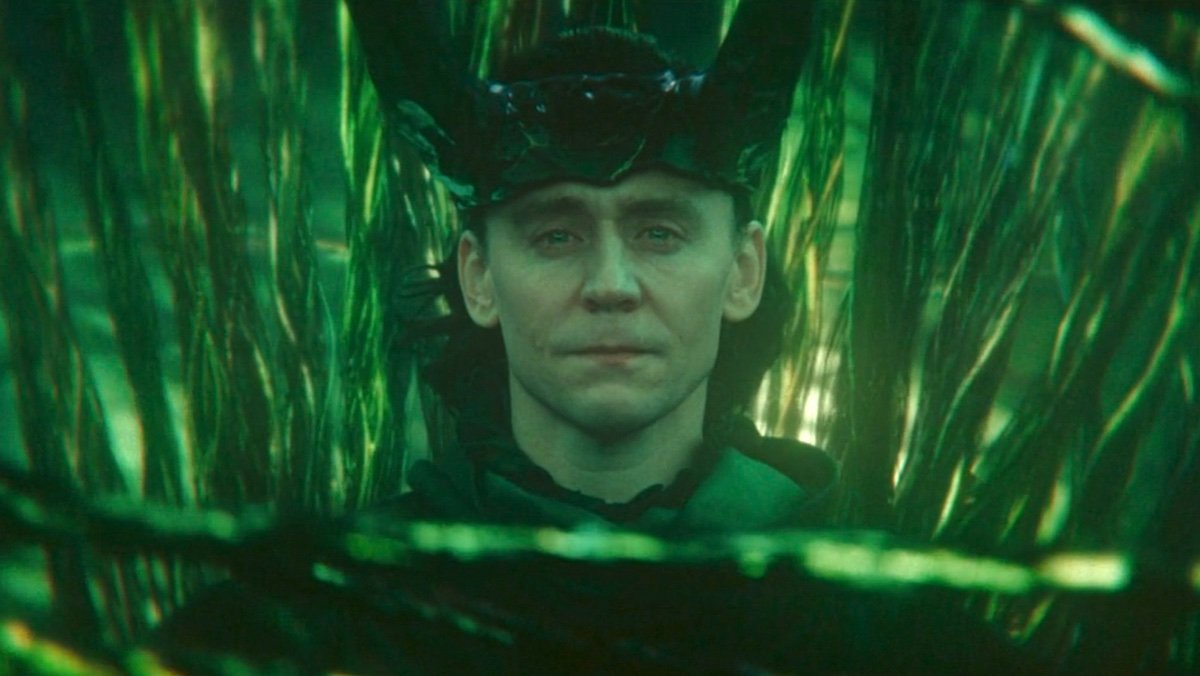“I am Loki of Asgard, and I am burdened with glorious purpose.”
Loki‘s season two finale proved the Asgardian prince was right all along. Only the glorious purpose with which Loki believed himself burdened turned out to be very different from anything he’d imagined. The God of Mischief, who wanted nothing more than to be loved, who thought personal fulfillment could only be found in the admiration of adoring crowds, realized the only true purpose in life is loving others. Loki became the God of Stories, the being at the end of time who makes it possible for everyone, everywhere, to live their lives freely. It was the final chapter in a story that saw one of the MCU’s best, most interesting, most important characters, one who began his own tale as a selfish villain, become a selfless hero. But it wasn’t exactly a happy ending.
Loki only got everything he ever wanted and redeemed his soul with great personal sacrifice. To protect those he cares for most he must spend eternity apart from them. He sits on a throne no one will ever come before. He shoulders a burden the very multiverse he saved will never know about. It was a conclusion as heartbreaking as it was beautiful, tragic as it was hopeful, ironic as it was poetic. It was an honest, earned, emotional farewell in the way only bittersweet endings can be.

Loki spent his life projecting strength to hide the weakness that truly drove hm. He played the villain to exude toughness because he was always scared and insecure. He thought he needed to intimidate and awe others into submission if he was ever going to earn what he thought he wanted most of all: love and respect. His personal failings didn’t just lead to his own suffering, though. They led him to hurt so many. Loki turned his pain into more pain.
That Loki, with whom we spent 13 years, was long gone by the time he destroyed He Who Remains’ Temporal Loom. By then he’d finally learned to be honest with himself. That self-reflection allowed him to recognize what he actually wanted in life. He would never find meaning in the love of others, but rather in loving them. To show love to those he cared about most, though, he had to do the one thing he feared most. To fulfill his glorious purpose he had to accept being alone. And he has to do it without thanks. The infinite number of people who owe him their very existence don’t even know he’s out there, let alone what they owe him. And the handful of friends who do will never again see him. To give everything to everyone Loki had to give up everything.
Whether you always loved Loki or came to begrudgingly respect him for what he did, it was hard to see him sitting on his throne at the end of time and not feel conflicting emotions. He wasn’t weak or afraid. He’d grown as a person and became strong enough to do something amazing with his life. He did something that mattered, something that earned him true redemption, something that benefitted all of existence. What greater purpose could anyone have then Loki, protector of the Tree of Life? What would his father, mother, and brother think of him if they could see him now? He’d been so desperate to make them all proud and now he had. And yet, to accomplish everything he ever wanted he had to accept being alone, the one fate he feared.
It was an incredible ending for an incredible character and story, one that felt both earned and right. It’s why Loki’s final chapter stands alongside other great goodbyes in the MCU, the ones that didn’t ask us to only feel good or bad, but to feel everything. Tony Stark was once a war monger who wanted to build a suit of armor around the world. In the end he was that suit of armor, but he paid for it with his life. Just as Natasha Romanoff did. The Black Widow who wanted to erase the “red” in her ledger sacrificed herself to save her best friend and the whole universe. Like Loki their endings were not only fitting conclusions to their stories, they stand out because they forced us to accept that emotions that seem inherently at odds with one another are anything but.
There is no good without bad, no hope with fear, no life without death. And we feel both good and bad more acutely when they come together because together they best resemble the conflict of being alive. None of us will ever get happy endings. One day we will all say goodbye to those we love. We might bid farewell first or be the ones left behind, but a parting is coming. Every hug, every “see you later,” every piece of key lime pie we share together could be our last. Remembering that is painful, but that pain it also reminds us to enjoy those moments and those people more. Stories that remind us of that force us embrace the most inescapable truth about existence, that to be alive and to feel is bittersweet.
Not every great ending is bittersweet. Neither is every bittersweet ending great. But when one is honest to the character and their arc, when it feels like the only ending they ever could have had, it lands an emotional blow no other conclusion can. Because a bittersweet ending is the only kind of ending that asks us to feel everything at once the way life itself does. How fitting the new God of Stories, the hero who saved everyone’s story, ended up telling one that did just that.
Mikey Walsh is a staff writer at Nerdist. You can follow him on Twitter and Bluesky at @burgermike. And also anywhere someone is ranking the Targaryen kings.